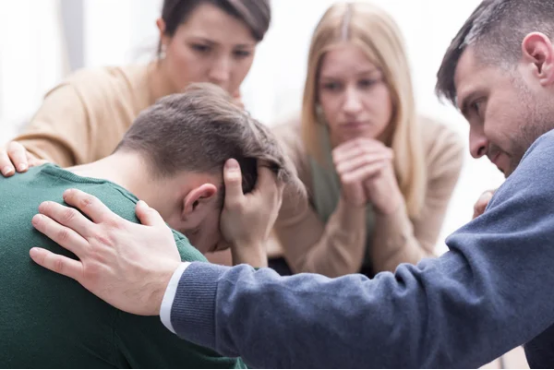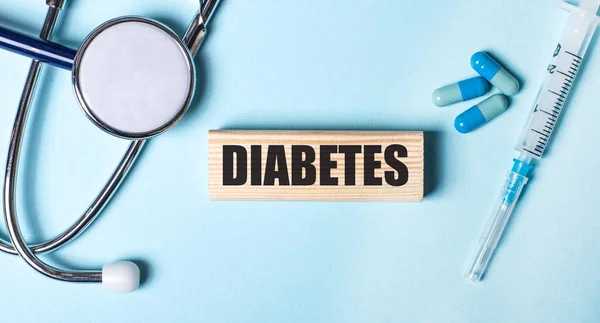Best Treatments for Substance Abuse: A Comprehensive Guide
Substance abuse is a serious health condition that affects millions of people globally. Whether it involves alcohol, opioids, prescription medications, or illicit drugs, substance abuse can wreak havoc on an individual’s physical health, emotional well-being, and social life. Fortunately, with the right treatment, recovery is possible. The best treatments for substance abuse are those that are personalized, holistic, and integrated, addressing both the physical and psychological aspects of addiction.
Substance abuse is a serious health condition that affects millions of people globally. Whether it involves alcohol, opioids, prescription medications, or illicit drugs, substance abuse can wreak havoc on an individual’s physical health, emotional well-being, and social life. Fortunately, with the right treatment, recovery is possible. The best treatments for substance abuse are those that are personalized, holistic, and integrated, addressing both the physical and psychological aspects of addiction.

This article explores the most effective and widely used treatment options for substance abuse, providing insights into the approaches that can help individuals reclaim control of their lives and break free from addiction.
1. Detoxification (Detox)
Detoxification, often the first step in addiction treatment, is the process of removing harmful substances from the body. Detox is necessary for individuals with physical dependence, as withdrawal symptoms can be intense and potentially dangerous. Medical detox provides a safe and structured environment for individuals to go through withdrawal with medical supervision.
- Medically supervised detoxensures that individuals receive medications and monitoring to manage withdrawal symptoms and reduce risks.
- Inpatient detoxis ideal for individuals with severe substance dependence, especially those addicted to alcohol, opioids, or benzodiazepines, as these substances can cause dangerous withdrawal symptoms.
Benefits:
- Provides a safe environment for managing withdrawal symptoms.
- Reduces the risks associated with detoxing from addictive substances.
- Prepares individuals for further therapeutic interventions and recovery.
2. Inpatient/Residential Treatment
Inpatient treatment, also known as residential treatment, involves staying at a treatment facility for a specified period of time, typically ranging from 30 to 90 days. This option is suitable for individuals with severe addiction or co-occurring mental health disorders, offering 24/7 care and a structured environment to focus on recovery.
- Therapeutic programsin inpatient treatment may include individual therapy, group therapy, cognitive behavioral therapy (CBT), and family therapy.
- Dual diagnosis treatmentaddresses both substance abuse and any underlying mental health conditions like depression, anxiety, or trauma.
Benefits:
- Offers a highly structured environmentthat eliminates distractions and triggers from daily life.
- Provides 24/7 care, which is particularly beneficial for those with severe substance abuse or withdrawal symptoms.
- Offers intensive psychotherapyand support for addressing the psychological causes of addiction.
3. Outpatient Treatment
Outpatient treatment allows individuals to receive care while living at home, making it a flexible option for those who do not require round-the-clock supervision. The intensity of outpatient programs can vary, with some people attending therapy multiple times a week, while others may have less frequent sessions.
- Outpatient programsinclude individual therapy, group counseling, family therapy, and educational sessions. Some programs also offer medication-assisted treatment (MAT) for individuals struggling with opioid or alcohol dependence.
- Individuals can continue with their daily activities (e.g., work, school) while receiving treatment.
Benefits:
- Offers more flexibility and allows individuals to maintain daily responsibilities while receiving care.
- Suitable for individuals with milder addictionor those transitioning from inpatient care.
- Less expensive than inpatient treatment, making it a more accessible option for many.
4. Medication-Assisted Treatment (MAT)
Medication-Assisted Treatment (MAT) is a scientifically-backed approach that combines medications with counseling and therapy to treat substance use disorders, particularly those involving opioids and alcohol. MAT is an effective solution for helping individuals manage cravings, reduce withdrawal symptoms, and improve treatment outcomes.
- Opioid Addiction: Common medications include methadone, buprenorphine, and naltrexone. These medications help to reduce cravingsand prevent withdrawal symptoms, allowing individuals to focus on therapy and recovery.
- Alcohol Addiction: Medications such as disulfiram(Antabuse), acamprosate, and naltrexone can help reduce alcohol cravings and the risk of relapse.
Benefits:
- Reduces cravings and withdrawal symptoms, making it easier for individuals to maintain abstinence from drugs and alcohol.
- Increases treatment retention and improves long-term recovery outcomes.
- Combines the benefits of medicationwith therapy for a more comprehensive approach.
5. Cognitive Behavioral Therapy (CBT)
Cognitive Behavioral Therapy (CBT) is one of the most widely used therapies for substance abuse. It is based on the premise that our thoughts, feelings, and behaviors are interconnected. CBT helps individuals identify and change negative thought patterns and behaviors that contribute to substance abuse.
- CBT helps individuals understand the underlying triggersfor their substance use, such as stress, anxiety, or social pressure, and develop healthy coping strategies to deal with these triggers.
- It is often used in both individual therapyand group therapy settings.
Benefits:
- Teaches individuals to recognize and change destructive thought patterns and behaviors.
- Helps to develop coping skillsto deal with cravings, stress, and emotional triggers.
- Can be used effectively in both outpatientand inpatient treatment settings.
6. Group Therapy
Group therapy involves sessions where individuals share their experiences with others who are facing similar challenges. It provides a sense of community and support as participants work through their recovery journey together. Group therapy can be an important part of both inpatient and outpatient treatment.
- Group therapytypically includes structured sessions led by a trained therapist or counselor. Participants engage in discussions, share their struggles and successes, and receive feedback and support from their peers.
- 12-step groupslike Alcoholics Anonymous (AA) and Narcotics Anonymous (NA) are examples of support groups that follow a structured program to help individuals maintain sobriety.
Benefits:
- Provides a sense of camaraderieand support from others who understand the challenges of addiction.
- Encourages accountabilityand shared healing, allowing individuals to learn from others’ experiences.
- Reduces isolationand fosters a strong recovery community.
7. Family Therapy
Substance abuse often has a profound impact on family dynamics, and family therapy is an essential part of many treatment programs. Family therapy helps improve communication, resolve conflicts, and address the effects of addiction on family members.
- Family therapycan include joint sessions between the individual in recovery and their family members, where everyone works together to understand addiction, develop healthy coping strategies, and rebuild relationships.
- It is especially important for individuals who may have codependent relationshipsor unhealthy family dynamics that contribute to their substance use.
Benefits:
- Strengthens family relationships, providing support for long-term recovery.
- Helps family members understand the impact of addiction and how they can be part of the recovery process.
- Provides a platform for healingand forgiveness within the family unit.
8. Holistic Therapies and Alternative Treatments
In addition to traditional treatments, many people benefit from holistic therapies that promote overall well-being and help individuals manage stress, anxiety, and other emotional triggers. These treatments complement conventional therapies and can be an important part of the recovery process.
- Yogaand Meditation: Help individuals manage stress, improve focus, and promote relaxation.
- Acupuncture: Has been shown to help reduce cravings and withdrawal symptoms in some individuals.
- Art and Music Therapy: Provide creative outlets for self-expression and emotional healing.
- Exercise: Regular physical activity helps improve mood, reduce stress, and improve overall health.
Benefits:
- Reduces stressand promotes mental and emotional well-being.
- Encourages a balanced lifestylethat supports long-term recovery.
- Provides tools for managing triggers and cravings in a non-chemicalway.
9. Aftercare and Relapse Prevention
Once an individual completes a treatment program, aftercare is essential for long-term recovery. Aftercare refers to the ongoing support, therapy, and resources that help individuals maintain their sobriety and prevent relapse.
- Relapse prevention programsteach individuals strategies for managing triggers, handling stress, and dealing with difficult situations without turning to substances.
- Continued participation in support groups, therapy, and alumni programsis encouraged to maintain accountability and connection to the recovery community.
Benefits:
- Prevents relapseby teaching individuals strategies to cope with life after treatment.
- Provides ongoing supportand encouragement, which is crucial for maintaining long-term sobriety.
- Helps individuals reintegrate into daily life while continuing their recovery journey.
Conclusion: Choosing the Right Treatment for You
The best treatment for substance abuse depends on the individual’s unique needs, the severity of their addiction, and any co-occurring mental health conditions. Successful recovery typically requires a combination of approaches, including medical detox, therapy, support groups, and ongoing aftercare. It’s important to seek help from professionals who can tailor a treatment plan that works best for you.
Recovery from substance abuse is a journey, and while it may not always be easy, it is entirely achievable. With the right treatment, support, and commitment, individuals can overcome addiction and rebuild their lives. Take the first step today toward a healthier future—help is available, and a brighter tomorrow awaits.








